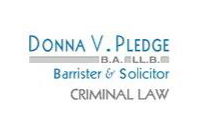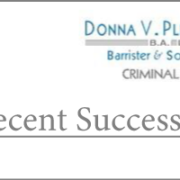What is Failure to Comply With Recognizance?
In Ontario, if you commit a crime, you may be let out on bail. Bail is a form of release that allows you to leave jail while you await trial. In addition to setting bail, a judge may place certain conditions on the release. These forms of release are called undertaking and recognizances. These supervisory orders may limit your liberties. In other words, you must follow certain rules like:
- Be on good behavior.
- Keep the peace.
- Attend each court hearing.
- Complete specific programs.
- Staying away from alcohol, drugs or weapons.
- Returning to residence at a certain time.
- Staying away from specific individuals connected to the case etc.
One condition that is specified above is the condition of staying out of trouble, or keep the peace. The idea behind the law is to make sure an individual stays out of trouble while out on bail. In Ontario, anyone who is accused of another indictable offense while awaiting trial has also failed to comply with the undertaking and recognizances.
How Do the Police Know about the Compliance?
Typically, a surety is responsible for ensuring that you follow the conditions of release, and police may check up on you. For instance, he or she may check to see if you are still in Ontario or that you do not possess any firearms. If the surety or police officer finds that you have violated any of the conditions, he or she may report the failure to the court.
You are not considered automatically guilty of the crime. You must return for a hearing on the matter.
Consequences of a Failure to Comply with Recognizance
If you don’t follow conditions, it is considered a failure to comply with recognizance. The failure to comply with recognizance charge is separate from any other crime you were originally accused of committing. Per subsection 515(12), 522 (2.1) or 516 (2) there are two consequences of being guilty of failure to comply with recognizances:
- An imprisonment term of two years if an indictable offense
- A summary conviction.
In addition, your bail may also be revoked. Thus, you may have to return to jail until the outcome of your trial is resolved. If you are accused of an offense and have any of these restrictions on you, you must comply. If you don’t, it is a failure to comply with recognizances. You will want to speak with an experienced Toronto criminal lawyer about how to resolve this separate charge and avoid potential jail time. Individuals are found guilty of this crime when they do not have a lawful reason for a failure to comply. In some situations, a lawyer may be able to negotiate a way to resolve the failure to ensure you continue to comply with the conditions.
If you are facing a failure to comply with recognizance charge, contact Donna V. Pledge and her team today



